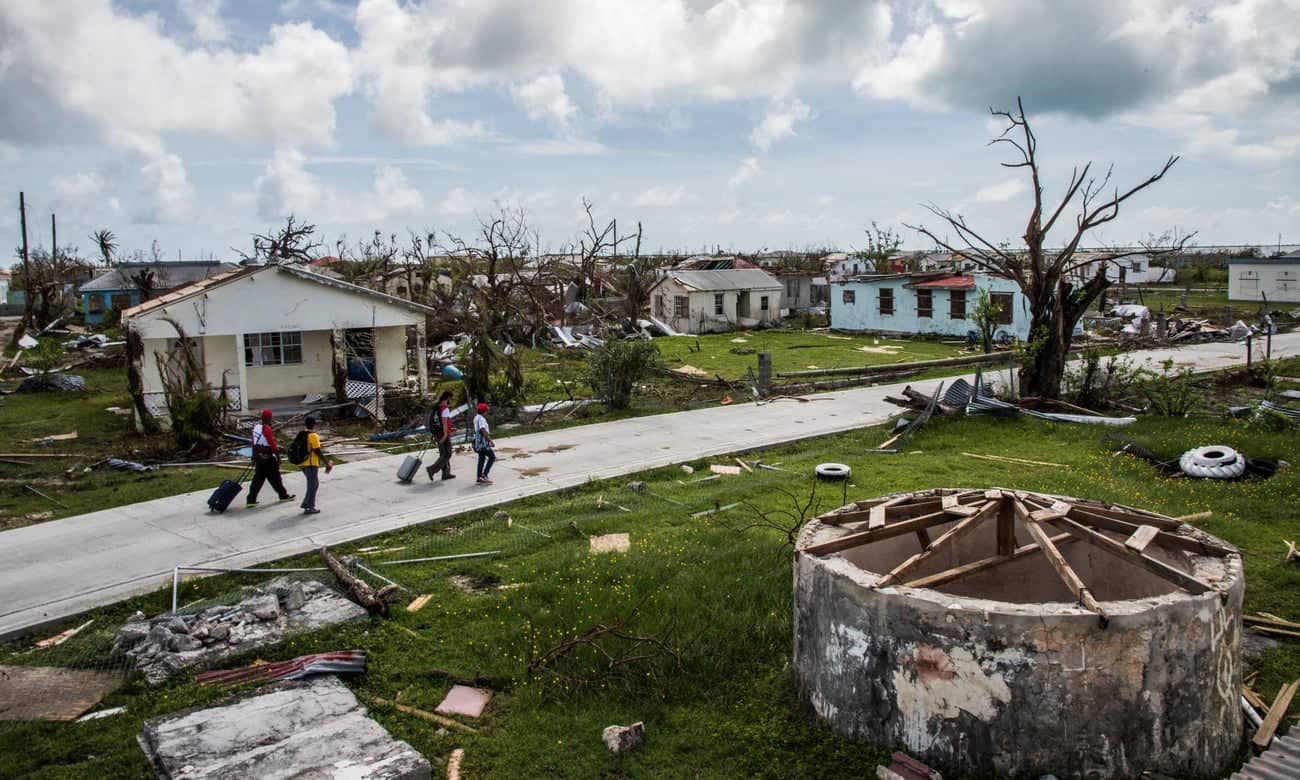
The Eastern Caribbean Currency Union (ECCU) member states are trapped in a vicious circle between natural disasters, weak fiscal frameworks and low economic growth, according to a study undertaken by the International Monetary Fund (IMF).
The study notes that for developing small states such as in the ECCU, which are subject to larger and more frequent disasters that affect the entire economy, natural disasters can have a large impact on the economy and on government finances.
It notes that the private sector is in general uninsured or underinsured for natural disasters, especially the most vulnerable segments of the population, typically the majority and most exposed.
“Because of insufficient market-based insurance, governments become the de-facto ultimate insurer, especially for extreme natural disaster events. This means that governments are typically called to cover not only the costs of destruction of public infrastructure, but also a significant share of private losses. Government are also asked to provide for social support, adding to the fiscal pressures.”
The study notes that the Caribbean Catastrophe Risk Insurance Facility (CCRIF), to which all ECCU countries have access, have been a valuable instrument, but most countries risk ceding remains below needs mainly because of the perceived high cost and competing developmental needs under fiscal sustainability challenges, and the imperfect correlation between parametric triggers for disbursement and damages
The ECCU groups the islands of Antigua and Barbuda, Dominica, Grenada, St. Lucia, St. Vincent and the Grenadines, St. Kitts-Nevis, and Montserrat.
The study notes that in order for the ECCU member states to exit this cycle of natural disasters, weak fiscal frameworks and low economic growth, it would require forceful measures to address all its elements, including resilient physical investment in preventing damages from natural disasters; enhancing “circuit-breakers” such as saving funds, insurance and other contingency-based financing and effective operational plans.
Crucially, the study notes, would be the strengthening fiscal frameworks and policies to achieve debt sustainability and overall fiscal policy countercyclicality that supports the shift towards building ex-ante resilience.
The study notes that fiscal responsibility frameworks offer tangible benefits for the ECCU countries, in terms of fiscal sustainability and resilience building.
“Well-designed frameworks have a fair record in addressing problems of debt unsustainability and pro-cyclicality. The experience of other countries, including in the region, suggests that substantial fiscal and growth benefits could derive from the frameworks that are well-tailored to country circumstances and are broadly shared societally.”
The study argues that the frameworks should aim to create fiscal space for resilient investment and insurance coverage, which will address the key portion of the ECCU’s deficit and pro-cyclicality biases that are due to natural disaster cycle.
It said the proposed “umbrella structure” for the FRFs (frequency response functios)in the ECCU seeks to give substantial leeway to individual countries.
“The bottom-up approach derives from the primacy of national sovereignty, but also from substantial heterogeneity in the individual countries’ positions. The countries can build broad societal ownership by selecting and calibrating the many features of well-designed frameworks within a reasonably parsimonious system of targets and institutional elements.”
But the study notes that the main common elements derive from the need to credibly achieve the hared 60 per cent of gross domestic product (GDP) debt target, and in this context budget balance-based frameworks would be particularly suitable for ECCU countries in the period through 2030. It said that mechanisms to deal with natural disasters should be accommodated by the (FRFs) as integral elements.
“This step currently presents an opportunity for critical progress, but enhanced support from the international community would be a key option for realizing those benefits.
“While adopting the FRFs is an essential step, it is only part of the agenda to make the ECCU’s economies more prosperous and resilient,” the study notes, adding that while it had focused on the resilience of the public balance sheet and infrastructure, major efforts are also needed to bolster private sector resilience and growth.
“The public sector needs to take the lead in underpinning economy-wide resilience by serving as example, pro-actively enacting standards, and implementing effective economy-wide growth strategies that are compatible with the reality of intensifying natural disasters,” it added.
Advertise with the mоѕt vіѕіtеd nеwѕ ѕіtе іn Antigua!
We offer fully customizable and flexible digital marketing packages.
Contact us at [email protected]


















Barbuda would have been back on her feet and running 6 months after hurricane Irma passed if donation monies had not been stolen/squandered, and apparently used to prop up the government.
Smh. You need to do something about the assertions made in your post. Take the EVIDENCE to the relevant personnel.
What about the airline? Whete are the planes?
Comments are closed.